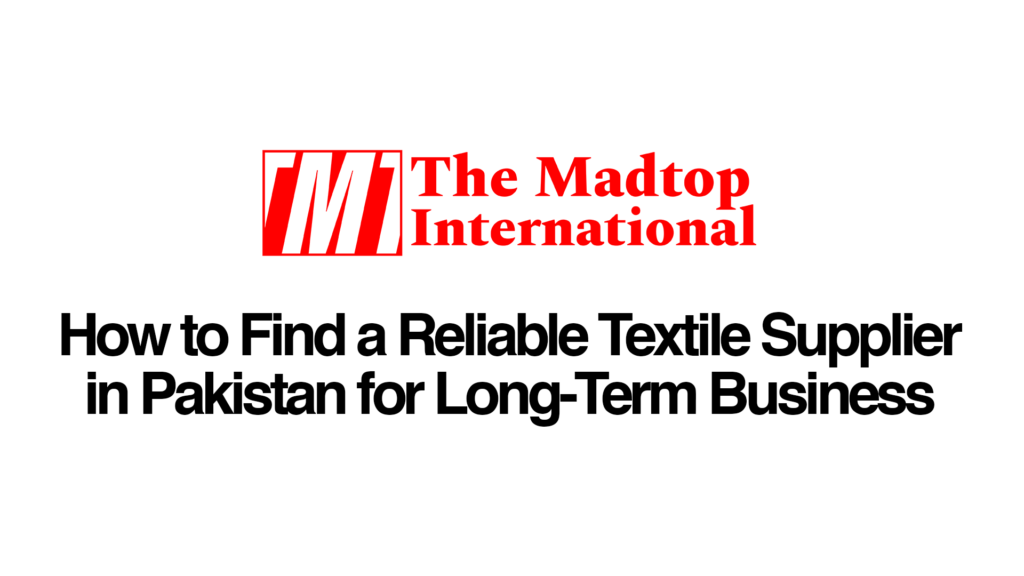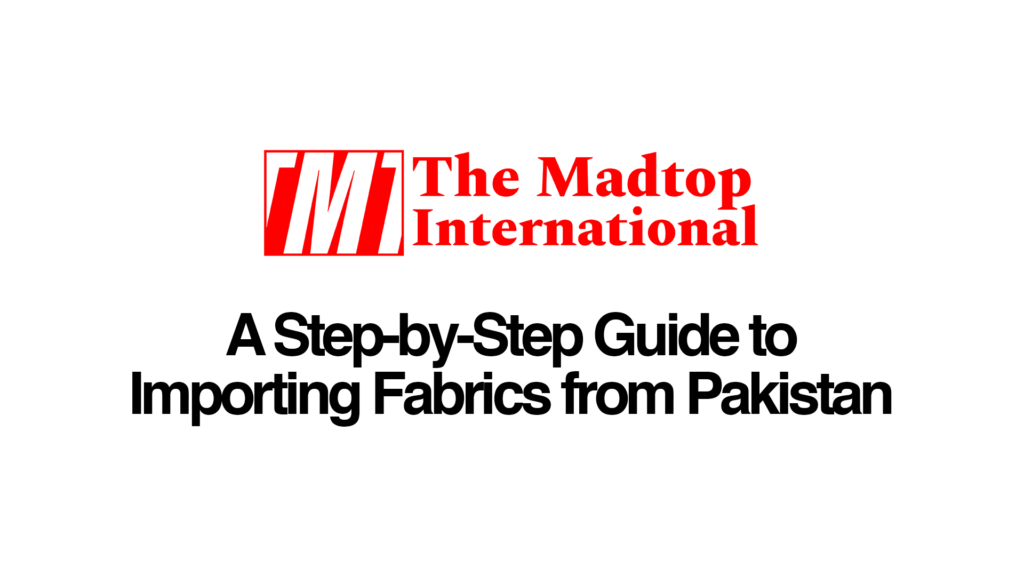Table of Contents
📈 Introduction
When you are sourcing fabrics or finished textiles from overseas, trust and reliability are key.
If you’re looking to verify a textile supplier in Pakistan before placing large orders, you need a clear strategy to avoid risks and ensure you’re working with a professional and capable partner.
In this guide, we’ll walk you through 7 smart ways to confirm a supplier’s authenticity before you commit your money and business future to them.
🌍 Why It’s Important to Verify a Textile Supplier in Pakistan
Pakistan is one of the world’s largest textile exporters, offering competitive pricing and high-quality products.
However, just like in any market, you’ll find a mix of:
- Reputable manufacturers
- Middlemen
- New players with limited experience
Verifying your supplier ensures you avoid:
- Delays in production
- Poor quality products
- Payment disputes
- Customs or shipping problems
1. Research Their Company Background
Start by doing some online research:
- Visit their official website
- Check their business history
- Look at how long they’ve been operating
- Search for reviews or mentions on trade platforms
A professional supplier will have a clear online presence showing their products, company information, and ways to contact them.
🔗 Learn how to find a reliable textile supplier in Pakistan
2. Check Their Past Export Experience
Experienced suppliers often proudly mention:
- Countries they export to
- Trade shows they’ve attended (like Textile Asia, Heimtextil, etc.)
- Major brands or retailers they supply (if allowed)
If they have strong export experience, it shows they understand quality standards, documentation, and international logistics.
3. Ask for Product Samples
Before placing a bulk order:
- Request fabric swatches
- Inspect stitching, dye quality, texture, and finishing
- Test shrinkage and colorfastness (after washing)
Receiving physical samples is the best way to judge whether they can meet your quality expectations.
✅ Tip: A trustworthy supplier won’t hesitate to send samples!
4. Request References from Previous Clients
A good supplier will happily provide:
- Names of clients (with permission)
- Testimonials
- Case studies of past work
If they refuse or avoid giving references, it’s a red flag.
5. Evaluate Their Communication and Professionalism
Pay attention to how they:
- Respond to emails or calls
- Provide clear answers and technical information
- Handle your questions or concerns
A professional and responsive supplier is much more likely to deliver your orders smoothly.
Poor communication early on often leads to bigger problems later!
6. Visit Their Facility (or Arrange a Virtual Tour)
If possible:
- Visit their production unit in Pakistan
- Check their machines, fabrics, quality control processes
If you can’t visit, ask for a live video tour via Zoom, Google Meet, or WhatsApp video.
Good suppliers are open to showing you their operations — it builds trust.
7. Start with a Small Trial Order
Even after verification, it’s smart to:
- Place a small order first
- Monitor production timelines, quality, and delivery
- Use the first order as a “test run”
If they handle a small order well, you can confidently move to larger volumes.
✅ Tip: Also use this order to understand their export documentation quality (like commercial invoices, packing lists, certificates of origin, etc.)
📝 Conclusion
When you verify a textile supplier in Pakistan carefully, you lower the risk of problems and build a foundation for a strong, long-term partnership.
By following the steps outlined above — researching, testing, visiting, and trial orders — you ensure your business deals are based on trust, quality, and professionalism.
Taking a little extra time upfront saves money, time, and reputation later!


